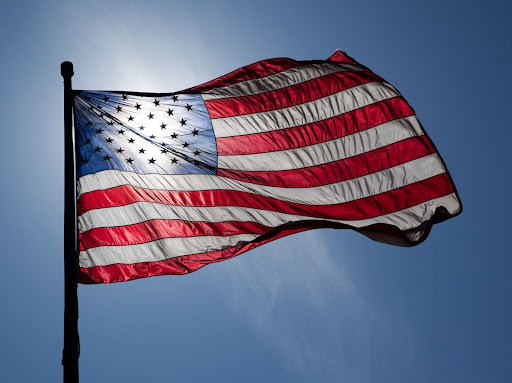Struggle for justice continues in South Dakota

Google Creative Commons License
#NoDAPL is the slogan adopted by those against the Dakota Access Pipeline. The slogan has spread across social media with activists calling for action and change.
Recently, the Departments of Justice, Army, and Interior ordered the Dakota Access, LLC, a unit of the Texas-based Energy Transfer Partners, to halt the construction of the Dakota Access Pipeline, which was planned to go through important native american tribal lands. However, the peace did not last long.
Authorities are currently investigating whether or not the protesters’ civil rights have been violated by the police.
“Peaceful protests are being met with military vehicles and heavily armed law enforcement personnel in riot gear. Rather than seeking to keep the peace, law enforcement personnel are clearly working in tandem with private security of Dakota Access,” Dave Archambault, chairman of the Standing Rock Sioux, wrote to U.S. Attorney General Loretta Lynch on Oct. 24.
Police forces claim that they have not violated anyone’s rights and are doing their best to avoid confrontation, only performing arrests when protesters trespass onto private property. Protesters have occupied the area near Lake Oahe owned by the construction company, Dakota Access.
Another clash between protesters and police occurred on Oct. 26. Civil rights activist Reverend Jesse Jackson, a former coworker of Martin Luther King Jr., appeared on horseback to show his support for the Sioux tribe.
“We tried to go down there and say ‘listen just clear the highways, go back to the main camp, let’s talk’ and they won’t,” Sheriff Paul Lanley of Cass County told a Fox News reporter, referring to the protesters at Lake Oahe. “At some point, rule of law has to be enforced. We could go down there at any time. We are trying not to. We are trying to avoid the confrontation,”
Protesters didn’t see it that way.
“We don’t have any plans of taking that camp down…if they’re going to come in here and they’re going to arrest one of us, they’re going to arrest every one of us. Were going to stand in unity, we’re going to stand in prayer, we’re going to stand in peace,” Mekasi Horinek, a camp coordinator for the Sioux tribe, told the same reporter.
The police did go down to the Lake Oahe camp Oct. 27 and arrested over 100 protesters, who were assaulted with pepper spray and shot with bean bags. Two days later, protesters were allegedly put in a dog cages and numbered, sparking outrages on Twitter. This sort of racist behavior on the cops part is absolutely disgusting.
It was later confirmed that there were large metal cages used to detain multiple protesters at a time.
Grand Central Station in New York became the site of a protest on Nov. 1. Protesters gathered at the station around eight in the morning and marched to the JPMorgan and Bank of America offices, two of the pipeline’s biggest financial supporters.
Photographer Erik McGregor tweeted out a photo of protesters holding a large banner reading “Indigenous sovereignty protects the land & water.” Other protesters were photographed holding smaller signs reading “Water is life,” “Beware those who conquer others,” and “Greed is deadly.”
“All over this country, Native Americans have suffered far too much, and for far too long. They deserve a voice,” Senator Bernie Sanders tweeted. “When we destroy nature, we are ultimately destroying the human beings of this planet.”
The Sioux tribe and their supporters should be commended as heroes instead of being treated like criminals. They are protecting a source of water for 1.7 million people. Their voices should be heard, not silenced.






